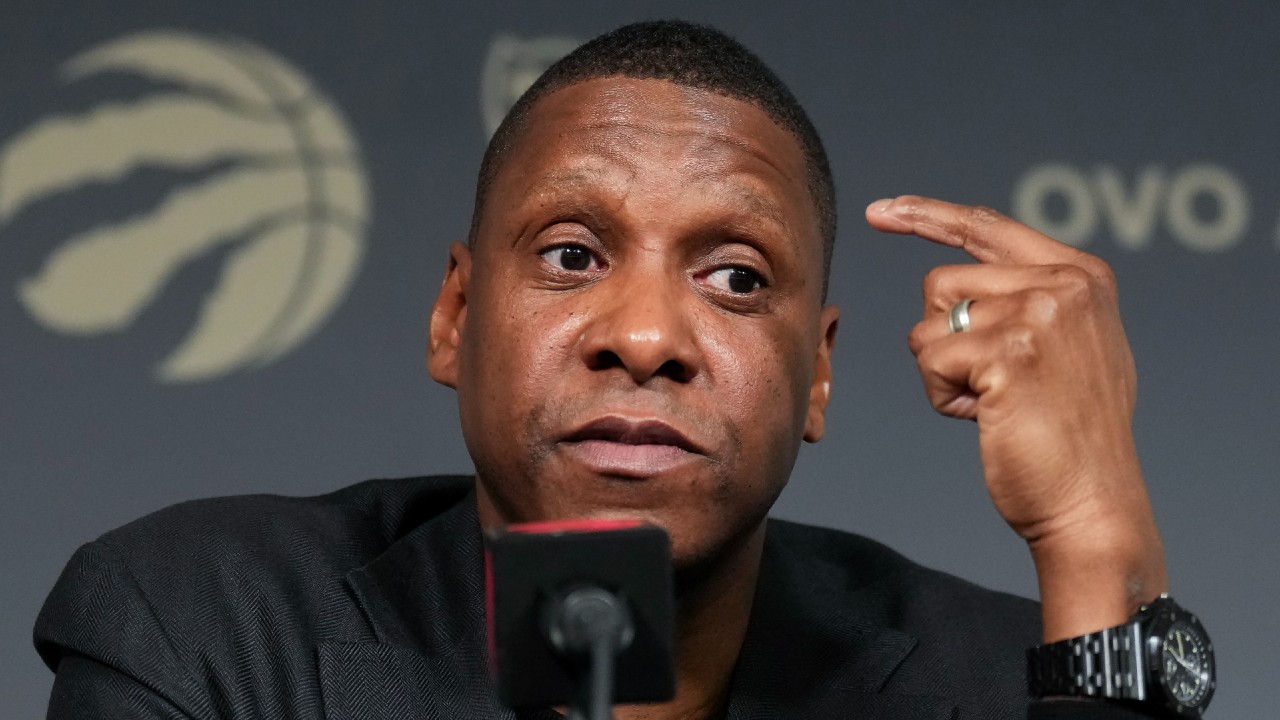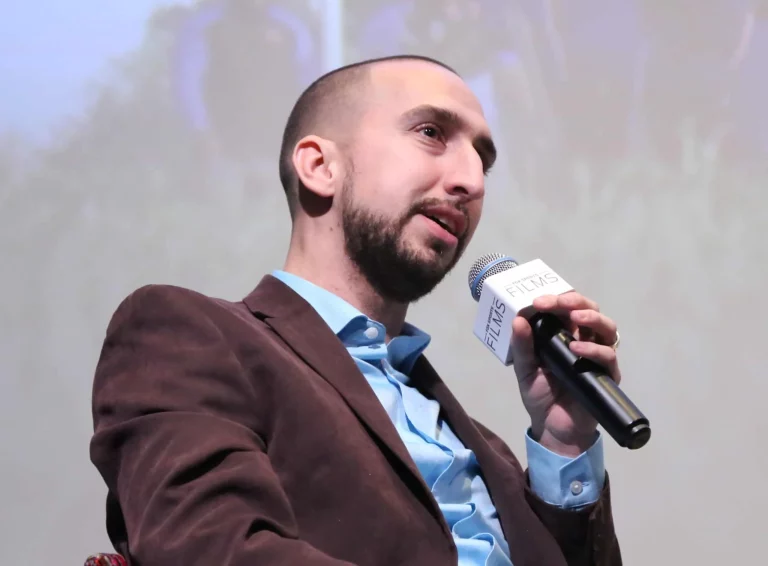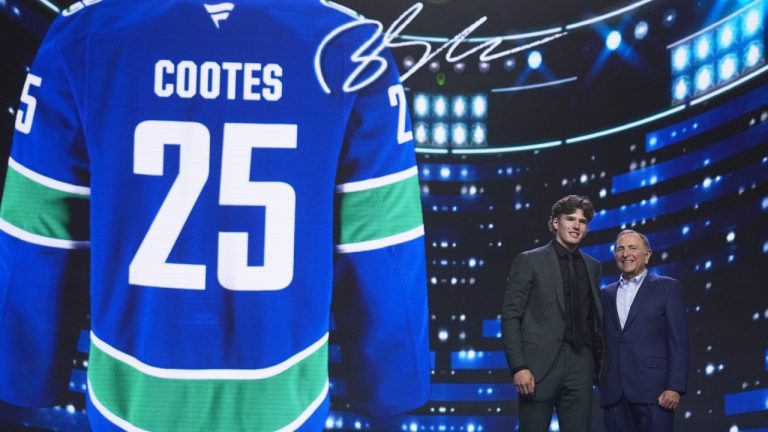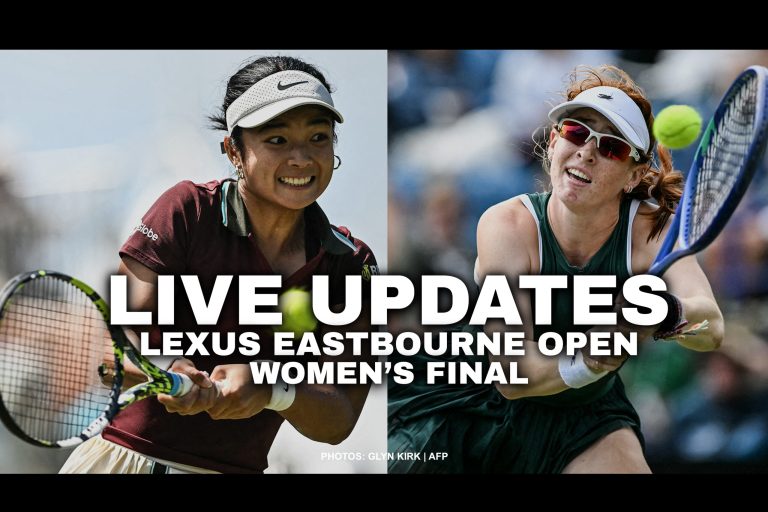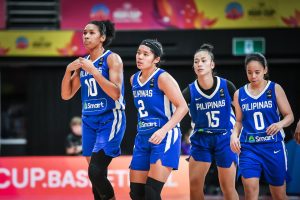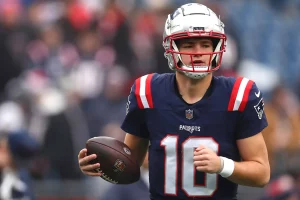Masai Ujiri is a name that carries immense weight in the global basketball community, in Canada and in the city of Toronto.
And for good reason. After the first 18 years of the Toronto Raptors’ existence were marred by disappointment and the departure of superstars, Ujiri steered the franchise out of some of its darkest days into a new, prosperous era.
Prior to Ujiri taking the helm, the franchise record was 581-847. They had made only five playoff appearances, never making it past the Eastern Conference semifinals. The Zaria, Nigeria-raised executive matched and exceeded those five playoff appearances right out of the gate, making the playoffs in his first seven consecutive seasons. Toronto made a memorable run to the Eastern Conference Finals in 2016, and it all culminated in winning the 2019 NBA Championship.
Ujiri’s story is singular. After starting as a scout for the Nuggets and then the Raptors, he was eventually hired as general manager in Denver, becoming the first and only African general manager of a professional sports franchise in North America. He returned to Toronto to take the GM role in 2013 and rose to president after the Conference Finals run in 2016, all while working as the president and co-founder of Giants of Africa to provide basketball infrastructure and opportunity to youth throughout the continent.
His tenure as Toronto’s lead basketball executive was defined by an ability to inspire faith in Toronto’s basketball community, his outspoken desire to win and multiple shrewd moves that set the Raptors up for success. Ujiri even gained a reputation as someone to avoid dealing with due to his tendency to win trades, some of which undoubtedly led the Raptors to their greatest era in franchise history.
Let’s look back on some of those moves that will define the Ujiri era.
Ujiri’s first move after taking over the decision-making was a resounding success, and one with a trade tree that extends all the way to the championship (more on that later).
The trade: July 10, 2013
New York Knicks receive: Andrea Bargnani
Toronto Raptors receive: Steve Novak, Marcus Camby, Quentin Richardson, 2016 first-round pick, 2014 second-round pick, 2017 second-round pick
The Raptors would end up waiving Camby and Richardson, essentially getting Toronto out of the $22 million they owed Bargnani over the next two seasons.
It was a home run for the Raptors and a disaster for the Knicks. Toronto’s first-overall pick in 2006, Bargnani averaged 19.2 points during his three-season peak in Toronto, yet was coming off a season where he averaged only 12.7 points and 3.7 rebounds while playing only 35 games. The Italian forward went on to play only 71 games over two losing seasons with the Knicks, averaging 13.9 points and 4.9 rebounds, far from the production expected of a player traded for a first-round pick. Bargnani played a final half-season in Brooklyn before finishing his basketball career in Europe.
Meanwhile, the Raptors’ return wound up being crucial to their future success. While Novak’s single season in Toronto and the second-round pick (Xavier Thames) had little to no impact on the team’s trajectory, the first-round pick was used to draft Jakob Poeltl ninth overall in 2016. A promising prospect and integral part of Toronto’s ‘Bench Mob’, Poeltl was a strong depth contributor in the two successful seasons prior to the championship. Then he made a different kind of contribution, getting traded to the San Antonio Spurs alongside DeMar DeRozan and a first-round pick for Danny Green and Kawhi Leonard.
It was the trade that kept on giving, as yet another wrinkle proved essential to Toronto’s dominance in the 2010s. It helped the Raptors keep Kyle Lowry.
Lowry, affectionately referred to as the G.R.O.A.T. (Greatest Raptor of all time), was on the verge of being dealt to the same Knicks after Toronto started the 2013-14 season 6-12. The feisty six-foot point guard was initially set on leaving Toronto after being dealt to the Raptors the season before Ujiri’s arrival. And though it appeared his wishes would be granted, the Knicks owner pulled the rug out from under the deal.
“James Dolan comes in and says, ‘Look, I’m not doing this deal because Masai Ujiri is on the other end of the phone. I don’t want to look like an idiot,'” Michael Grange said in the Sportsnet documentary Raptors Delight.
The Bargnani trade wasn’t the first deal that Ujiri made (and won) with Dolan and the Knicks. While in Denver, he sent Carmelo Anthony to the Big Apple for a return including Wilson Chandler, Raymond Felton and a first-round pick that ultimately became Jamal Murray. The trade was considered a win for the Nuggets at the time and only swung further in their favour with age.
Funny enough, Dolan’s hesitancy in dealing with Ujiri cost him Lowry, the linchpin of the Raptors’ run as contenders and eventual champions.
Of course, you can’t revisit the Raptors’ glory years without mentioning the move that started it all.
The trade: Dec. 8, 2013
Sacramento Kings receive: Rudy Gay, Quincy Acy, Aaron Gray
Toronto Raptors receive: Patrick Patterson, John Salmons, Chuck Hayes, Greivis Vásquez.
It seemed innocuous enough at the time, with the Raptors moving a player in Gay who occupied similar spaces on the floor as their emerging young star DeRozan.
Prompted by the same poor start that nearly caused them to trade Lowry, the best player in the deal being dealt away appeared to signal the start of a rebuild for the Raptors with a strong Andrew Wiggins-led draft class on the horizon. But DeRozan and Lowry had other plans. After the abysmal 6-12 start, the trading away of Gay and the near-trade of Lowry, the team went 42-22 over the remainder of the season.
Not only did the trade catalyze the team’s spirit, but it also bore fruit in the future. After a successful two-season stint as the Raptors’ backup point guard, averaging an identical 9.5 points and 3.7 assists each season, Vásquez was traded to the Milwaukee Bucks in exchange for a second-round pick in 2015 (Norman Powell) and a first-round pick in 2017 (OG Anunoby).
A string of late-draft sleepers
Powell was a key bench piece for the Raptors, delivering both microwave scoring and big moments — his unforgettable “Superman” slam punctuating a Game 5 comeback victory and eventual first-round series win over the Indiana Pacers in 2016.
And while Anunoby was injured for the Raptors’ actual run to the title, he contributed plenty over the years, throughout the championship season and beyond. The forward’s game-winning shot against the Boston Celtics in the bubble and subsequent “I don’t shoot trying to miss” quote is another all-time Raptors moment.
Ujiri also gets credit for leading the front-office group that decided to draft not only Anunoby (23rd overall) and Powell (46th overall), but also Pascal Siakam (27th overall).
Each player would assuredly be picked much higher in a re-draft of their class, and Fred VanVleet’s addition as an undrafted free agent in 2016, along with Siakam and Poeltl, took the expression “finding a diamond in the rough” to a whole new level.
With a sterling record on both trades and draft picks, seven straight playoff appearances and the ultimate prize, it was a golden era for both Ujiri and the Raptors.
The trade: July 18, 2018
San Antonio Spurs receive: DeMar DeRozan, Jakob Poeltl, protected 2019 first-round pick
Toronto Raptors receive: Kawhi Leonard, Danny Green
Despite making the playoffs in five consecutive seasons and cementing themselves as an Eastern Conference superpower, Ujiri wasn’t satisfied going into the 2018-19 season — the Raptors had been eliminated by LeBron James’s Cleveland Cavaliers in three straight seasons.
What followed was still a shock, as he fired reigning coach of the year Dwane Casey and replaced him with longtime assistant Nick Nurse. Then came the real doozy.
Ujiri traded the longest-tenured Raptor, who was also the franchise’s all-time leading scorer and the leader of the most successful period in the team’s history, for a star with one year remaining on his contract. Leonard was known to be mercurial, and it was unsure — improbable even — that he would re-sign. It was remarkably bold, the ultimate gamble.
The Raptors won it all, toppling a Golden State Warriors dynasty in a storybook season. Leonard won his second NBA Finals MVP and set new career highs in points (26.6) and rebounds (7.3). Alex McKechnie kept him healthy and the term “load management” was born.
Then, of course, he left. The opportunity for a repeat wasn’t enough to dissuade “Board Man” from returning home to Los Angeles as he signed with his hometown Clippers. Still, it’s safe to say that any Raptors fan would make the trade again 10 times out of 10. It was a fun year with a fun guy.
No trade can top the Leonard deal. It’s unquestionably the most important trade in Raptors history and the defining move of Ujiri’s tenure. Yet, there was another move pivotal to bringing a Larry O’Brien trophy to Toronto.
The trade: Feb. 7, 2019
Memphis Grizzlies receive: Jonas Valanciunas, Delon Wright, C.J. Miles, second-round pick
Toronto Raptors receive: Marc Gasol
The Raptors don’t get past Joel Embiid and the Philadelphia 76ers in the second round, or Giannis Antetokounmpo and the Milwaukee Bucks in the Eastern Conference Finals, without Gasol anchoring them defensively. Gasol’s efforts — including holding Embiid under 20 points in five of the seven games in the series and helping build a defensive wall against Antetokounmpo — have become the stuff of legends.
To get the move done, the Raptors included Valanciunas, a centre that the team drafted and developed into a valuable talent, along with another savvy late selection by Ujiri and company, Delon Wright (20th overall). The kind of progression, cascading a late draft pick or player with limited value into a key contributor, was one of the defining features of Ujiri’s term as Toronto’s lead basketball executive.
After turning the Raptors into one of the NBA’s model franchises over the course of seven seasons, it took a global pandemic to slow Ujiri’s roll.
Once the Raptors were eliminated in the 2020 bubble by the Celtics — in part because of Siakam’s struggles after being unable to properly train for five months due to COVID-19 restrictions and visa issues — they were forced to make a move from Toronto to Tampa for the entire 2020-21 season.
Gasol (Lakers) and Serge Ibaka (Clippers) didn’t join them at Amalie Arena as they’d moved on to other teams, and Aron Baynes and Alex Len proved to be insufficient replacements. One lost year played in an unfamiliar environment in front of virtual fans later and Lowry was gone too.
After a string of hits that would cause the Beatles envy, Ujiri started to miss.
The trade: March 25, 2021
Portland Trail Blazers receive: Norman Powell
Toronto Raptors receive: Gary Trent Jr., Rodney Hood
First, Powell went to Portland for Gary Trent Jr. and Rodney Hood. Trent was younger and full of promise, but never developed much of a game beyond his shot and eventually went on to the Bucks in free agency ahead of the 2024-25 season on a veteran minimum, meanwhile Powell has averaged over 20 points in two separate seasons for the Clippers, most recently setting a career high of 21.8 points per game and starting throughout the playoffs.
The trade: Feb. 10, 2022
San Antonio Spurs receive: Goran Dragic, Drew Eubanks, protected 2022 first-round pick
Toronto Raptors receive: Thaddeus Young, 2022 second-round pick
Dragic, part of the return for Lowry, hardly suited up for the Raptors before being dealt to the Spurs for Young. As part of the deal, Toronto also swapped their 25th pick in the 2022 draft for a 33rd pick from San Antonio. They drafted Cristian Koloko at No. 33, two picks after Andrew Nembhard went to the Indiana Pacers. And while there’s no guarantee the Raptors would have selected Nembhard had they not moved back, it lives on as a massive “what if?”.
The trade: Feb. 9, 2023
San Antonio Spurs receive: Khem Birch, protected 2024 first-round pick, 2023 second-round pick, 2025 second-round pick
Toronto Raptors receive: Jakob Poeltl
After making the questionable decision to move back in a draft while the Raptors resided in the middle of the standings, Ujiri once again sent out draft capital the next season. The Raptors’ long-vacant centre position was filled by reuniting with Poeltl in exchange for a first-round pick.
Even when Toronto did have draft picks in recent years, they often failed to pan out. In an unfortunate turn of events for the Raptors, Malachi Flynn was drafted one spot ahead of Desmond Bane in 2020.
It hasn’t all been bad. Choosing Scottie Barnes over Jalen Suggs at No. 4 in the 2021 draft has proven to be the right choice. Gradey Dick and Ja’Kobe Walter, among others, have the potential to end up as positive selections.
Even last off-season, Ujiri turned Jalen McDaniels, who hardly played for the Raptors, into Davion Mitchell and two second-round picks that became Jamal Shead and Alijah Martin. Then he traded Mitchell for another second at the deadline, essentially conjuring three picks out of thin air.
Ujiri never lost his shrewdness, making positive moves around the margins. But his signature big-value additions had largely been absent throughout the post-championship era.
Regardless, his legacy will live on as the most successful executive of a Toronto sports team in the last three decades.
